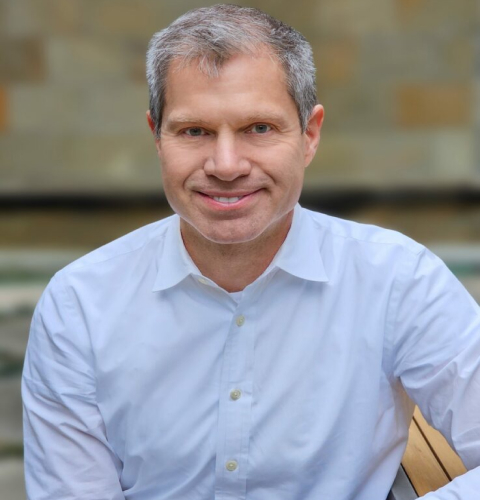The journey of In Vitro Fertilization (IVF) can be both hopeful and challenging. It’s a complex process filled with emotions, and many patients experience stress, hormonal imbalances, and emotional strain along the way. This blog aims to introduce you to acupuncture, a complementary therapy that can significantly benefit your IVF journey by potentially boosting success rates and effectively managing stress.
Understanding IVF and Its Challenges
IVF is a medical procedure that helps couples facing infertility conceive. It involves stimulating egg production, egg retrieval, fertilization with sperm in a laboratory setting, and embryo transfer into the uterus. While IVF offers a path to parenthood for many couples, the process can be emotionally and physically demanding. Common challenges faced by IVF patients include:
- Stress and anxiety: The emotional rollercoaster of hoping for a positive outcome with each cycle can be overwhelming.
- Hormonal fluctuations: Fertility medications can cause hormonal imbalances, leading to mood swings, fatigue, and other side effects.
- Emotional strain: The possibility of setbacks and the constant pressure to succeed can be emotionally draining.
How Acupuncture Works
Acupuncture is a traditional Chinese medicine practice with a history dating back thousands of years. It involves inserting thin sterile needles at specific points along the body’s meridians. These meridians are believed to be channels through which energy flows. By stimulating these points, acupuncture aims to restore balance and improve the body’s natural healing abilities.
For IVF patients, acupuncture can be integrated into their treatment plan alongside conventional medical care. Acupuncture sessions are typically scheduled before and after egg retrieval, embryo transfer, and throughout the luteal phase (the period after ovulation) to support the body’s preparation and optimize the environment for implantation.
Studies on Acupuncture for IVF
Acupuncture has been increasingly explored as a potential adjunct to in vitro fertilization (IVF) treatment. Numerous clinical trials have investigated its impact on various IVF stages, from ovarian stimulation to embryo transfer. However, the existing body of research presents a complex and inconsistent picture, with studies yielding divergent findings regarding acupuncture’s influence on pregnancy rates.
A comprehensive review by A. Nandi and colleagues highlighted significant discrepancies among studies, making it challenging to draw definitive conclusions about acupuncture’s benefits in IVF. While most research consistently indicates acupuncture’s safety and positive effects on patient well-being, its role in improving live birth rates remains uncertain and warrants further rigorous investigation through well-designed randomized controlled trials.
Our patient’s experience with acupuncture during IVF
While the scientific evidence surrounding acupuncture’s impact on IVF outcomes remains inconclusive, patient experiences offer valuable insights into its perceived benefits. Many women undergoing IVF report incorporating acupuncture into their treatment plans, often citing stress reduction as a primary motivation.
Patient testimonials provide compelling evidence of acupuncture’s potential to enhance the IVF experience. The shared experiences of Kimber Vietti, Jennifer Dietrich, and Erika Hodgson underscore the following key themes:
- Stress Reduction and Emotional Well-being: Patients frequently describe acupuncture as a valuable tool for managing the emotional turmoil associated with IVF. The treatment is perceived as a sanctuary from the pressures of the process, promoting mental clarity and resilience.
- Improved Overall Quality of Life: Beyond its potential impact on fertility, patients often report experiencing broader benefits, such as better sleep, increased energy levels, and enhanced general well-being.
- Complementary Care: Acupuncture is frequently viewed as a complementary therapy that complements traditional medical interventions, rather than a standalone treatment.
While patient testimonials offer compelling anecdotal evidence, it is crucial to acknowledge their limitations. Individual experiences may not be representative of the broader population, and placebo effects or other confounding factors could influence outcomes. Nevertheless, these accounts highlight the importance of considering the patient’s perspective in the holistic assessment of acupuncture’s role in IVF.
The integration of acupuncture into IVF care is often driven by patients seeking holistic support and stress management strategies. While scientific evidence regarding its impact on pregnancy rates remains inconclusive, the positive experiences reported by many women underscore its potential to enhance the overall IVF journey. Future research should prioritize a patient-centered approach to fully understand the multifaceted benefits of acupuncture in this context.
Ready to Take the First Step?
Metro Acupuncture, conveniently located in Sandy Springs, is here to support you on your IVF journey. We offer a compassionate and caring environment where you can feel comfortable and heard.
Contact us today to schedule a consultation! During your consultation, our acupuncturist will discuss your IVF goals, review your medical history, and answer any questions you may have. We can then collaboratively create a personalized treatment plan designed to optimize your well-being and potentially boost the success of your IVF journey.
Remember, you’re not alone on this path. At Metro Acupuncture, we’re here to empower you with knowledge and support as you embark on this exciting and transformative time in your life.
We look forward to partnering with you on your journey towards parenthood!
-
Mark A. Lewinter, DACM, L.Ac. has a Doctor of Acupuncture and Chinese Medicine degree from Pacific College of Health and Science and a Master of Science degree in Oriental Medicine from Southwest Acupuncture College. His interest in studying East Asian Medicine started at age thirteen when he was diagnosed with cancer. While undergoing chemotherapy, he also incorporated alternative medicine to facilitate his recovery.
View all posts
